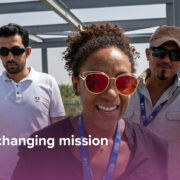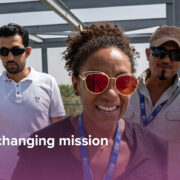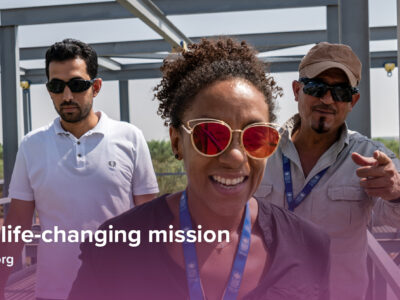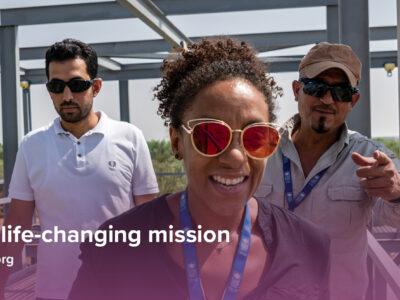
- Call for Application Number: IOM-CFA/0100/23
- Title: Consultancy for the development of guidelines and a checklist for gender-responsive labour migration policies
- Duty Station of the Consultancy: Home-based
- Duration of Consultancy: 30 working days extended to 9 months (November 2023 – July 2024)
- Nature of the Consultancy:Category B. Development of guidelines and a checklist for gender-responsive labour migration policies in Africa
Project Context and Scope:
The AUC-IOM-ILO Joint Labour Migration Programme
The AU-ILO-IOM-UNECA Joint Programme on Labour Migration Governance for Development and Integration (better known as the Joint Labour Migration Programme, or JLMP) in Africa is a long-term joint undertaking among the four organizations in coordination with other relevant partners operating in Africa, development cooperation actors, private sector organizations and civil society representatives. It is the instrument dedicated to the implementation of the 5th Key Priority Area of the Declaration and Plan of Action on Employment, Poverty Eradication and Inclusive Development, which was adopted by the Assembly of Heads of States and Governments in January 2015, Addis Ababa, Ethiopia. Its strategy focuses on intra-African labour migration and supports achievements of the First 2023 Ten Year Plan of the African Union (AU) Agenda 2063 and of the Sustainable Development Goals (SDGs). In addition, the JLMP is a critical instrument of implementing the Migration Policy Framework for Africa (MPFA) and Plan of Action (2018-2030) adopted by the AU Executive Council from 25-26 January 2018 in Addis Ababa, Ethiopia.
In line with the JLMP Strategic Framework, the Swedish International Development Cooperation Agency (Sida)-funded project Labour, Employment and Mobility Actions of the AU-ILO-IOM Joint Programme on Labour Migration Governance for Development and Integration in Africa (JLMP Lead) aims to contribute to the JLMP objective of strengthening the effective governance and regulation of labour migration and mobility for enhanced sustainable development for inclusive economic growth and regional integration of the African Continent.
The expected outcomes of the project are:
- Outcome 1: Strengthened effective, rights-based, and gender-responsive governance and regulation of labour migration and mobility for migrant workers of all gender identities in Africa.
- Outcome 2: Migrant workers of all gender identities in both formal and informal sectors enjoy safe, humane, and secure working environments, access to and portability of social protection and social benefits, and mutual recognition of skills and qualifications.
- Outcome 3: Improved availability and increased utilization of labour migration disaggregated data and statistics by MS and RECs for evidence-based decision-making, policy planning, formulation, and application.
- Outcome 4: Strengthened governance and accountability of the JLMP
Respect for human and labour rights as well as gender-responsiveness are two of the guiding principles of the JLMP Strategic Framework, which forms the basis of the JLMP programme. JLMP advocates for the protection, promotion and safeguarding of universal human and labour rights for all international migrants and upholds the principles of equal treatment and opportunities as well as non-discrimination. It recognizes that the needs of women, men, boys and girls differ and vary at different stages of migration and promotes advocacy for gender equality and equity as well as equitable access to resources and decision-making to empower each person to strive. JLMP has developed a Gender Analysis and Gender Action Plan (2021), which guide its implementation in order to prevent adverse impacts on men and/or women migrant workers and to use the programme in a transformative way to promote gender equality and equity.
As part of Outcome 1, the JLMP aims to develop practical guidelines and a checklist for gender-responsive labour migration policies.
The importance of gender-responsive labour migration policies
Labour migration, when governed in a gender-responsive way, can be a driving force for inclusive development and gender equality in both origin and destination countries. Gender responsive participation in the labour force fosters growth and development, and leveraging both men and women’s skills is essential for societies to prosper. Migration can be a driver of empowerment and autonomy for women and men, and provide opportunities for a shift in gender norms and stereotypes. Women migrant workers who return to countries of origin are increasingly seen as role models and contribute to changing perceptions about the role of women in the private and public sphere. Enabling safe, regular and dignified migration for women and men is therefore an opportunity to advance gender-sensitive development across the continent that contributes to both socio-economic development and gender equality.
At the same time, gender discrimination, harmful gender stereotyping and gender-based violence place women and men migrant workers in situations of vulnerability and limit the opportunities for them to contribute to social and economic development. Both men and women migrant workers may be confronted with intersecting forms of discrimination at all stages of the migration process. Labour market segregation is strongly gendered and limits choices and opportunities for men and women migrant workers. Women often are pushed into occupations traditionally viewed as female domains such as domestic work and care giving, which constitute very isolated environments, increasing their vulnerability to psychological, physical and sexual abuse. On the other hand, men are discouraged or disenabled from entering traditionally women-dominated sectors, limiting their employment options and potentially subjecting them to discrimination and social stigma if they do attempt to do so. Both men and women migrant workers are at risk of being subjected to gender-based violence and exploitation throughout the migration process, with different gender-specific barriers in accessing reporting, redress and justice mechanisms as well as limitations to access to health-care services. Women migrant workers in particular face numerous structural barriers and mobility restrictions that disproportionately affect them, often leading to their engagement in irregular migration pathways and exacerbating their vulnerability. Discriminatory policies, cultural norms, and legal frameworks limit women’s access to safe and regular migration channels, forcing them to seek alternative and often dangerous routes. Restrictions on mobility, such as stringent visa requirements, limited job opportunities, and social norms that confine women to certain roles, impede their ability to migrate for work.
The importance of gender-responsiveness in labor migration policies cannot be overstated. Gender-responsive labor migration policies ensure that the specific needs and challenges faced by women and men migrant workers are addressed in a comprehensive and equitable manner. The Committee on the Elimination of Discrimination against Women (CEDAW) in its General Recommendation No. 26 on women migrant workers emphasizes the responsibility of countries of destination and countries of origin to formulate comprehensive gender-sensitive and rights-based policies, on the basis of equality and non-discrimination and with the active involvement of women migrant workers and relevant non -governmental organizations. Furthermore, Agenda 2030 also highlights the linkages between gender and migration. For example, in SDG8.8 on decent work for all, the global community committed to protect labour rights and promote safe and secure working environments for all workers, including migrant workers, particularly women migrants, and those in precarious employment. Significantly, the AU Migration Policy Framework for Africa and its Plan of Action (2018-2030) (MPFA) called for Member States and the RECs to strengthen responses to the particular needs of migrant women and girls, particularly ensuring that their health needs, labour rights and human rights are respected. A gender perspective should be integrated in all national and regional migration management policies, strategies and programmes, recognising the specific needs of women in migration, anchored to promote their empowerment and leadership and moves away from addressing women migrants primarily through the lens of victimhood. Furthermore, the MPFA emphasises on the need to develop migration policies that allow women and men to migrate for employment through safe and regular channels.
By considering the unique experiences of women and men in the design and implementation of labor migration policies, countries can foster inclusive and fair migration systems that harness the full potential of all migrant workers, regardless of their gender. Moreover, gender-responsive policies help to combat discrimination, exploitation, and violence against women migrants, creating safer and more supportive environments for them. Ultimately, integrating gender perspectives into labor migration policies not only benefits individual migrant workers but also strengthens the social and economic fabric of both sending and receiving countries. As such, gender-responsive labour migration policies promote gender equality, protect the rights of migrant workers, and contribute to sustainable development.
However, policy-making pertaining to labour migration often fails to acknowledge and address gender dimensions of labour migration governance, policy and administration. A gender-neutral or gender-blind policy is likely to perpetuate existing inequalities and gendered dynamics, because it will prevent adequate protections and accommodations being put in place to counter existing gendered power dynamics. Policy-making that does not mainstream gender will ultimately fail to meet the diverse needs of men and women migrant workers and to meaningfully address the inequalities and challenges they face.
While various guidance materials exist on mainstreaming gender in migration governance, there are limited resources that consider the needs and challenges of men and women migrant workers in Africa. Further, there is also a need for actionable, practical and hands-on guidance outlining the key elements of gender-responsive labour migration policies contextualized to the African context.
Nature of the consultancy:
The objective of the consultancy is to develop practical guidelines and a checklist for African Union Member States on procedural and material elements to incorporate in a labour migration policy in Africa to ensure its gender-responsiveness.
Among others, the guidelines and checklist should include the following:
- Process: recommendations on the process to follow to develop a gender-responsive labour migration policy. What steps should be followed when developing a gender-responsive labour migration policy? Which stakeholders should be included? How can a gender balance, inclusive consultation and effective participation at all levels be ensured? How are follow up (including evaluation), sustainability, ownership, implementation and accountability ensured?
- Content: recommendations on how to integrate and address specific gender issues in policymaking. Possible questions include the following: what specific points should be taken into account in the labour migration policy in order to ensure its gender-responsiveness? What are some of the common gender-specific challenges that need to be addressed by a labour migration policy? The guidelines should include the formal and informal sector as well as skilled and unskilled, documented and undocumented migrant workers. They will cut across the entire migration cycle, from pre-departure to return.
- Incorporate good practices from Africa: analyze different existing labour migration policies in African Member States and RECs and share best practices from a gender perspective. Best practices from other regions can be added, while the focus should remain on Africa.
- Checklist combining both the procedural and substantive dimensions and offering an easy-to-follow step-by-step approach for the development of gender-responsive labour migration policies in Africa.
The documents will be informed by:
- Existing guidance on gender-responsive labour migration policies, as listed above
- Existing labour migration policies from AU Member States and RECs to highlight good practices
- Existing JLMP products, including the JLMP Gender Analysis and Gender Action Plan
- Other resources as relevant
- A consultative meeting with AU Member States on the draft documents in order to further enrich them in line with MS’ comments and feedback
Scope of work and key deliverables
Reporting
The consultant will work under the overall supervision of the AUC JLMP Programme Coordinator, in close coordination with counterparts at AU/IOM/ILO Addis Ababa and other relevant specialists in regional and country offices, as agreed upon during the inception phase.
Tangible and measurable outputs of the work assignment
Deliverable 1: Inception report – November 2023
- Development of an inception report, specifying the consultant’s understanding of the assignments, timelines and methodology, and including a skeleton structure in form of an annotated outline for the draft guidelines.
- Revision of the inception report according to feedback received by JLMP
Deliverable 2: Draft guidelines and checklist – May 2024
- Production of the draft guidelines and checklist
- Incorporation of JLMP and other stakeholders’ comments during various rounds of review
Deliverable 3: Final guidelines and checklist – July 2024
- Presentation of the draft guidelines and checklist to AU Member States in a consultative meeting, incorporation of their comments, production of a meeting report
- Presentation of the draft guidelines and checklist to AU Member States in a validation meeting, incorporation of their comments, and production of a meeting report
- Submission of the final guidelines and checklist
Payment schedule
The total fee, inclusive of related costs, not subject to any deductions, will be paid to the consultant as follows.
- 20% after submission of the inception report and approval by the project team (Deliverable 1)
- 50% after completion and approval of the draft guidelines and checklist (Deliverable 2)
- 30% after the approval of the final guidelines and checklist (Deliverable 3)
Education, Experience and/or skills required
Education
Post-graduate or equivalent degree in Gender Studies, Migration Studies, Law, Public Policy and Management, Public Administration, Human Rights, Development Studies, or any other relevant university degree.
Technical experience
- Minimum relevant work experience of 5 years.
- Demonstrable technical experience in the field of gender, migration governance, migration policy, labour migration and human mobility
- Familiarity and demonstrated experience with gender issues in the context of labour migration in Africa.
- In-depth knowledge of gender and labour migration dynamics in Africa and other regions.
- Proven substantial involvement in gender mainstreaming and policy development.
- Previous working experience with the JLMP, AUC, RECs, the UN (in general) or the IOM and ILO is an asset.
- Skilled and experienced in research, excellent conceptual and analytical skills, excellent writing skills
Skills
- Excellent analytical and organizational skills; ability to think critically and creatively;
- Skilled communicator, both verbally and in writing;
- Attention to detail and highly organized, collaborative, and team-oriented;
- High levels of proficiency with Microsoft Excel; proficiency with PowerPoint and Word;
- Demonstrated ability to manage multiple priorities, deadlines, tasks efficiently.
Language
- Fluency in English and at least passive knowledge in French is required for this consultancy service
Travel required:
This is home-based consultancy assignment
Competencies:
Values
- Inclusion and respect for diversity: respects and promotes individual and cultural differences. Encourages diversity and inclusion.
- Integrity and transparency: maintains high ethical standards and acts in a manner consistent with organizational principles/rules and standards of conduct
- Professionalism: demonstrates ability to work in a composed, competent and committed manner and exercises careful judgment in meeting day-to-day challenges
- Courage: demonstrates willingness to take a stand on issues of importance.
- Empathy: shows compassion for others, makes people feel safe, respected and fairly treated
Core Competencies – behavioural indicators
- Teamwork: develops and promotes effective collaboration within and across units to achieve shared goals and optimize results.
- Delivering results: produces and delivers quality results in a service-oriented and timely manner; is action-oriented and committed to achieving agreed outcomes.
- Managing and sharing knowledge: continuously seeks to learn, share knowledge and innovate.
- Accountability: takes ownership for achieving the Organization’s priorities and assumes responsibility for own action and delegated work.
- Communication: encourages and contributes to clear and open communication; explains complex matters in an informative, inspiring and motivational way.
CEDAW Committee, General Recommendation 26 on Women Migrant Workers, 2008, GR 26 on women migrant workers E NY (ohchr.org)
International Labour Organization, Gender Equality in Labour Migration Law Policy and Management, 2016, Labour migration: Gender equality in labour migration law, policy and management (GEM Toolkit) (ilo.org); OSCE, Guide on Gender-Sensitive Labour Migration Policies, 2009, Guide on Gender-Sensitive Labour Migration Policies | OSCE; UN Women, Making Gender-Sensitive Migration Laws, 2017, Policy-brief-Making-gender-responsive-migration-laws-en.pdf (unwomen.org); UN Women, Policies and Practice: A Guide to Gender-Responsive Implementation of the Global Compact for Migration, 2021, PP Guide_A4_Web_designed_FINAL.pdf (unwomen.org)
Interested candidates are invited to submit applications through [email protected], on or before the closing date (15th September 2023), referring to theconsultancy title and call for application number in the subject line of the email. Applicants are expected to submit the following:
- Financial quotation/proposal relating to this assignment in USD, specifying the professional fee as well as the total all-inclusive consultancy fee;
- Letter of motivation describing the consultant’s suitability for the assignment;
- Up-to-date curriculum vitae with three professional referees and
- Two examples of similar works.
Please note that only shortlisted candidates will be contacted.
Applicants who do not follow the required procedure will automatically be disqualified from the competition.
We strongly encourage qualified women to apply!











Comments